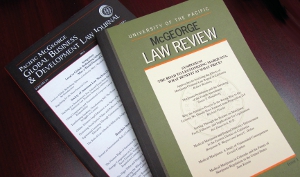Justice Scalia’s Eighth Amendment Jurisprudence: An Unabashed Foe of Criminal Defendants
Document Type
Article
Publication Date
2016
Abstract
Justice Scalia’s death has already produced a host of commentary on his career. Depending on the issue, Justice Scalia’s legacy is quite complicated. Justice Scalia’s commitment to originalism explains at least some of his pro-defendant positions. Some of his supporters point to such examples to support a claim that Justice Scalia was principled in his application of his jurisprudential philosophy. However, in one area, Justice Scalia was an unabashed foe of criminal defendants: his Eighth Amendment jurisprudential dealing with terms of imprisonment. There, based on his reading of the historical record, he argued that the Eighth Amendment’s prohibition against cruel and unusual punishment does not include a proportionality principle and concluded that a term of imprisonment need not be proportional to the underlying crime. Many historians disagree with his originalist analysis. In effect, Justice Scalia got it wrong in his proportionality case law because he engaged in “law office history,” the selective reading of a few passages taken out of context.
Justice Scalia adhered to his originalist methodology, though, over time, he vacillated on the degree of his commitment to originalism. However, in the area of proportionality and the Eighth Amendment, he should have abandoned his methodology. Justice Scalia’s professed deference to the legislative branch is inappropriate in the criminal sentencing arena, as the legislative process is not well suited to criminal sentencing. Criminal sentencing calls for judicial intervention because it is likely to be an area where the political process will result in excessive sentences and will leave prisoners with no meaningful political power to reform the laws’ excesses.
Publication Title
AKRON L. REV.
ISSN
0002-371X
Volume
50
Issue
2
First Page
175
Recommended Citation
Michael Vitiello,
Justice Scalia’s Eighth Amendment Jurisprudence: An Unabashed Foe of Criminal Defendants,
50
Akron L. Rev.
175
(2016).
Available at:
https://scholarlycommons.pacific.edu/facultyarticles/588



